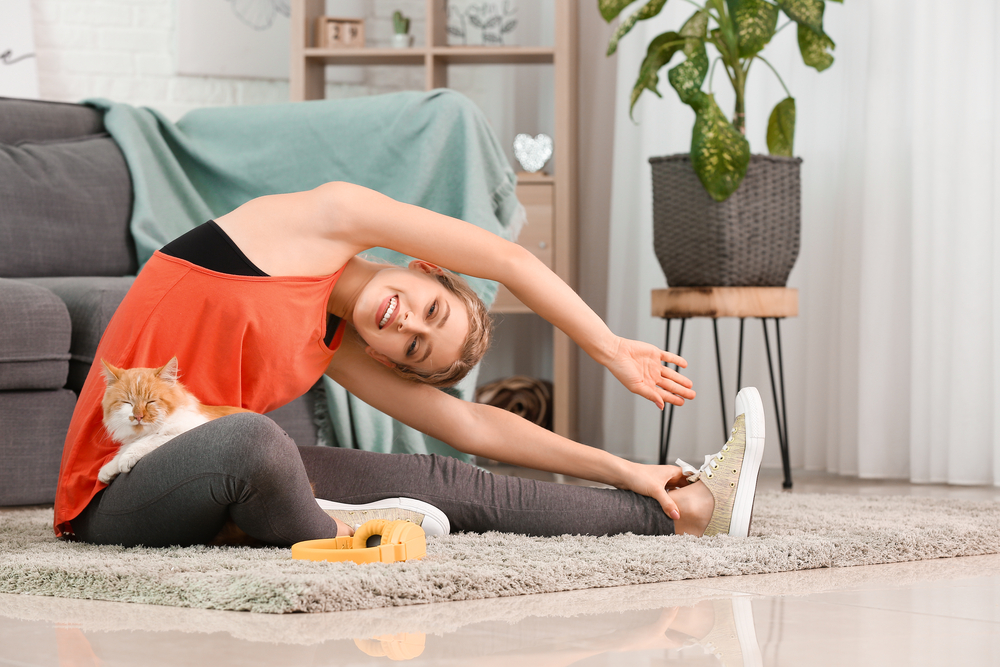We’ve compiled a variety of tools and resources to help you stay physically, mentally and emotionally healthy during coronavirus shutdowns.
The Centers for Disease Control (CDC) and other public health authorities are unified in one message: We all must practice social distancing to keep ourselves and our loved ones safe from the coronavirus. That entails keeping about 6 feet of distance between ourselves and others, avoiding crowds, and hunkering down at home. To reinforce and support this important medical advice, many states and municipalities are imposing various levels of shutdowns, lock downs, or shelter-in-place requirements and business closures. These measures vary by geography, duration and intensity so you need to watch your local news to learn the details of the plan in your state and community.
First, let’s tackle “social distancing,” a term that barely existed a few weeks ago. The Guardian offers an expert guide to social distancing – and what to do if friends and family aren’t onboard. Below, this video from a social epidemiologist talks about the importance and answers some tough questions.
if you are on lock-down, it’s important to keep to a routine. Eat well, exercise, maintain good sleep habits, and manage stress and anxiety. It’s also important to heighten your hygiene and know steps to take to protect yourself from germs. See our prior post: Coronavirus prevention and precaution tips.
We’ve gathered tips and tools to help you, but if you are a member of ESI EAP, remember that you have access to counselors and coaches 24/7/365 if you need help or have questions.
Exercise to stay fit and active
Most gyms are closed. They aren’t a great environment for social distancing. (If your gym is open, Staying Safe at the Gym During the Coronavirus Outbreak)
But with being confined to home, it makes it more of a challenge to stay active. We all know that sitting around too much isn’t good for us. Here’s why
First, learn your local rules. Most shutdowns allow for walking pets and going to the market. Use these as opportunities for exercise. If your state rules allow for walking, jogging or biking, practice good social distancing. Here are other ideas.
- Exercising During Coronavirus: Can I Jog? Is That Water Fountain Safe? – Answers to questions about coronavirus and exercise.
- This 20-minute hotel workout is perfect for social distancing
- Yoga is good for you both physically and mentally – many find it to be akin to meditation. Learn the many benefits of yoga.
- How to [Bicycle] Ride Safely Amid Coronavirus Concerns
- Jumping rope is something you can do in your yard or cellar or the sidewalk in front of your house. It provides a great aerobic workout. Here’s how to start jumping rope.
- Get fit and lose weight, trucker style
- CNBC: These are our favorite apps for exercising at home if you can’t get to a gym
- Parade: 125+ Free Streaming Workouts to Do From Home During Coronavirus
Maintain good nutrition & a healthy diet
- Grocery rules for your coronavirus lockdown: Buy beans, freeze milk, don’t hoard, and more
- Handy tips to cut calories and make healthy choices
- When it comes to a healthy diet, the secret is in the details
- Tips to store fruits and vegetables for best freshness, flavor & safety
- FDA: Food Safety and the Coronavirus Disease 2019 (COVID-19)
- American Society for Nutrition: Making Health and Nutrition a Priority During the Coronavirus (COVID-19) Pandemic
- What 3 nutritionists recommend stockpiling for healthy, flavorful meals during a coronavirus quarantine
Manage your stress and your mental and emotional health
Keep in contact with friends, relatives, work colleagues via phone, social media, or apps like face time and chat. Check in on older or vulnerable relatives and friends and people who live alone.
- Coronavirus Anxiety: Coping with Stress, Fear, and Uncertainty – Fears about COVID-19 can take an emotional toll, especially if you’re already living with an anxiety disorder. But you’re not powerless. These tips from HelpGuide can help you get through this stressful time.
- Coronavirus anxiety: Why the outbreak feeds worries and five simple ways to reduce coronavirus anxiety
- How to manage anxiety during a pandemic – Vox media says: We’re living in a stressful time. It’s important to take care of our mental health.
- 5 Ways to Manage Stress During the Coronavirus Outbreak – Tips for preventing a mental meltdown
- Find online AA meetings and Al-Anon electronic meetings
- National Alliance for Mental Illness (NAMI): updates on the Coronavirus. Also see the excellent questions and answers on questions related to anxiety, grief, loneliness and more.
- Stress Management Techniques
- How to make stress your friend
- How you can help during the coronavirus outbreak – Several nonprofit organizations could use your time and money to make sure vulnerable populations are cared for during the pandemic
Practice recommended hygiene and illness prevention
- CDC: How to Protect Yourself and What To Do if You Are Sick
- COVID-19 symptoms compared to other common conditions.
- Coronavirus Checker – Check your risk for COVID-19, tool by the Emory University School of Medicine
- These Common Household Products Can Destroy the Novel Coronavirus – Consumer Reports shows you how to use them and tells you which products to stay away from
- How to Clean and Disinfect Yourself, Your Home, and Your Stuff – These are our in-depth best practices for keeping yourself (and just about everything else) clean and virus-free.
- CDC: Show Me the Science – When & How to Use Hand Sanitizer in Community Settings.
- How to Protect Yourself From Coronavirus When Grocery Shopping – Here are precautions to take whether you shop in-store or online
- Germs and Hygiene – Facts, tips, prevention strategies and more from Medline.

